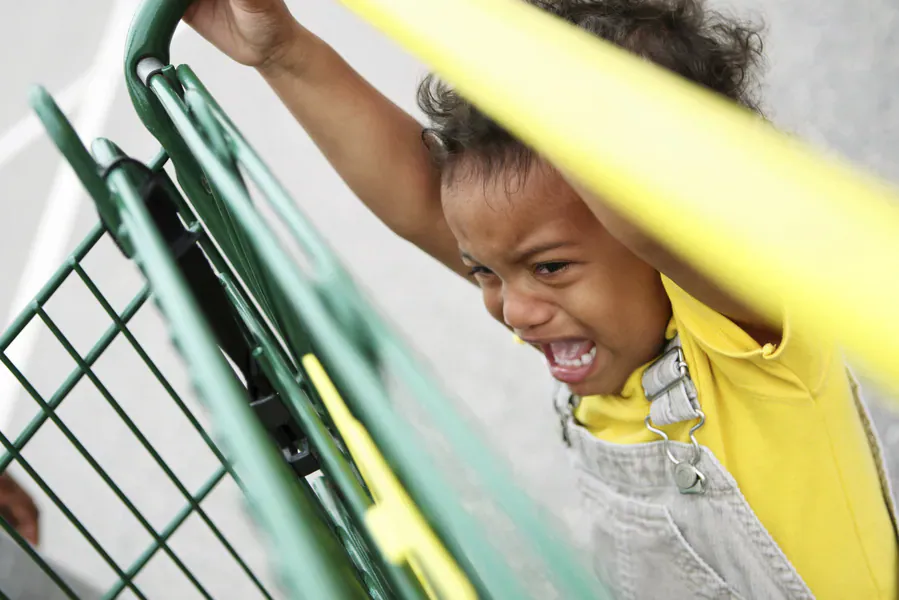Why toddler tantrums can be a good thing. Eventually.

Imagine if the person you love most in the world just told you that even though you’re recovering from the flu and have only had three hours sleep, they need you to run a marathon carrying a 50-kilo backpack, write a 5,000 word essay and cook a three-course gourmet meal before you can sit down. On top of that you won’t be able to watch your favorite TV show for the next six weeks, you just found out there’s chewing gum in your hair, and somebody just crashed into your car.
How would you react?
This is probably as good an approximation as any of the state of mind of a toddler having a tantrum. They may feel frustrated, overwhelmed, furious, scared, bored, confused, sad, worried, jealous, and, frequently, all of the above. They may also feel exhausted, hungry, thirsty, and that they just can’t cope with life. On top of all that, they lack the language skills to express their feelings.
Tantrums tend to happen somewhere like the middle of the canned food aisle (or somewhere else very public); the park (when it’s time to go); at a family gathering (in front of your in-laws); or in the bathroom, lounge or kitchen (usually at the worst possible time).
When your child has a tantrum, it can be hard to believe your delightful little baby is turning into an individual with a very strong mind of their own. Parents often feel embarrassed or shocked and may try pleading, yelling or bribery (“I’ll buy you the chocolate if you stop”). Although these reactions are natural, they can easily make tantrums worse, however unintentionally.
Tantrums generally begin sometime between when a child is at least a year old and when they’re three or four. A tantrum can be half a minute long or continue for several hours. It may include crying, screaming, stamping feet, rolling around on the floor, breath-holding – it’s good to know they will gasp eventually – head-banging, and/or the child hitting themselves or others.
SO HOW CAN THIS BE GOOD?
Although disruptive, tantrums are an important opportunity to help teach children how to manage frustration and anger. Knowing how to deal with life’s challenges, and how to express anger in appropriate ways, are very powerful tools for a successful adulthood.
Kids are individuals, whose natural tendencies may be anywhere between naturally quiet and easy-going (who may only rarely have tantrums) to more quick tempered or easily frustrated or overwhelmed (inclined to have frequent tantrums). So there’ll be a big variation in how much parental support, and time, they need to learn to self-regulate their emotions and behaviour.
There are a number of strategies you can use to help provide this support. Effective strategies, when used properly as part of your parenting skills tool-kit, may include prevention where possible, positive attention for behaviour you like, modeling calmness and self-regulation yourself, and making sure you’ve set some simple rules. You may want to find out more about the kind of skills offered by quality evidence-based parenting programs: for example how to effectively use appropriate consequences such as quiet time or time-out.
Ideally, manage tantrums as soon they first occur. Be strong – a short-term solution such as rewarding a tantrum can create a long-term problem. Tackling tantrums will take concerted effort and consistent application of strategies. But you’ll be on your way toward helping your child learn some important new social skills.

